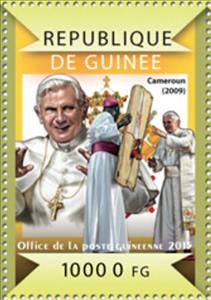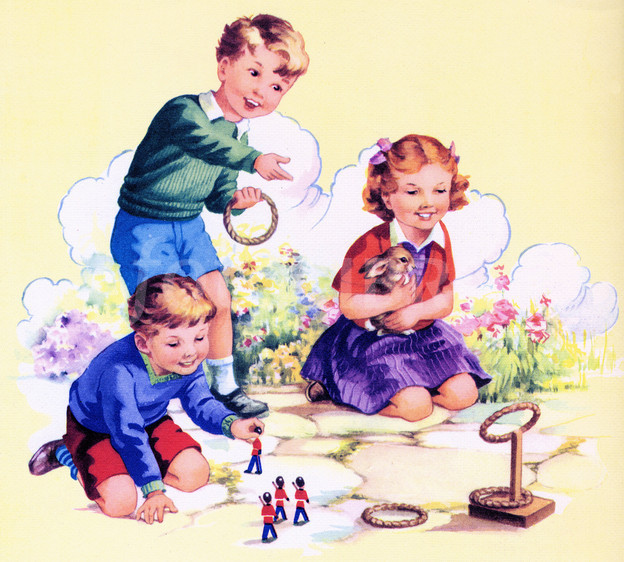Stamp: Pope in Cameroon (2009) (Guinea 2015)
Pope in Cameroon (2009) (Guinea 2015)
20 March (Guinea ) within release Travels of Pope Benedict XVI (2015) goes into circulation Stamp Pope in Cameroon (2009) face value 10,000 Guinean franc
| Stamp Pope in Cameroon (2009) in catalogues | |
|---|---|
| Michel: | Mi: GN 10992 |
| Yvert et Tellier: | Yt: GN 7674 |
Stamp is square format.
Stamp from mini sheet of 4Also in the issue Travels of Pope Benedict XVI (2015):
- Stamp - Lourdes (2008) face value 15,000;
- Stamp - Pope in Brezil (2007) face value 10,000;
- Stamp - Pope in Cameroon (2009) face value 10,000;
- Stamp - Pope in Israel (2009) face value 15,000;
- Stamp - Pope with children in Brazil (2007) face value 40,000;
Stamp Pope in Cameroon (2009) it reflects the thematic directions:
Biologically, a child (plural: children) is a human being between the stages of birth and puberty. The legal definition of child generally refers to a minor, otherwise known as a person younger than the age of majority. Child may also describe a relationship with a parent (such as sons and daughters of any age) or, metaphorically, an authority figure, or signify group membership in a clan, tribe, or religion; it can also signify being strongly affected by a specific time, place, or circumstance, as in "a child of nature" or "a child of the Sixties". There are many social issues that affect children, such as childhood education, bullying, child poverty, dysfunctional families, child labor, hunger, and child homelessness. Children can be raised by parents, by fosterers, guardians or partially raised in a day care center.
Play is a range of intrinsically motivated activities done for recreational pleasure and enjoyment. Play is commonly associated with children and juvenile-level activities, but may be engaged in at any life stage, and among other higher-functioning animals as well, most notably mammals and birds.
A coat of arms is an heraldic visual design on an escutcheon (i.e. shield), surcoat, or tabard. The coat of arms on an escutcheon forms the central element of the full heraldic achievement which in its whole consists of shield, supporters, crest, and motto. A coat of arms is traditionally unique to an individual person, family (except in the United Kingdom), state, organisation or corporation.
The pope (Latin: papa, from Ancient Greek: πάππας, romanized: páppas, lit. 'father') is the bishop of Rome and the visible head[a] of the worldwide Catholic Church. He is also known as the supreme pontiff, Roman pontiff, or sovereign pontiff. From the eighth century until 1870, the pope was the sovereign or head of state of the Papal States, and since 1929 of the much smaller Vatican City state.From a Catholic viewpoint, the primacy of the bishop of Rome is largely derived from his role as the apostolic successor to Saint Peter, to whom primacy was conferred by Jesus, who gave Peter the Keys of Heaven and the powers of "binding and loosing", naming him as the "rock" upon which the Church would be built. The reigning pope is Francis, who was elected on 13 March 2013.



